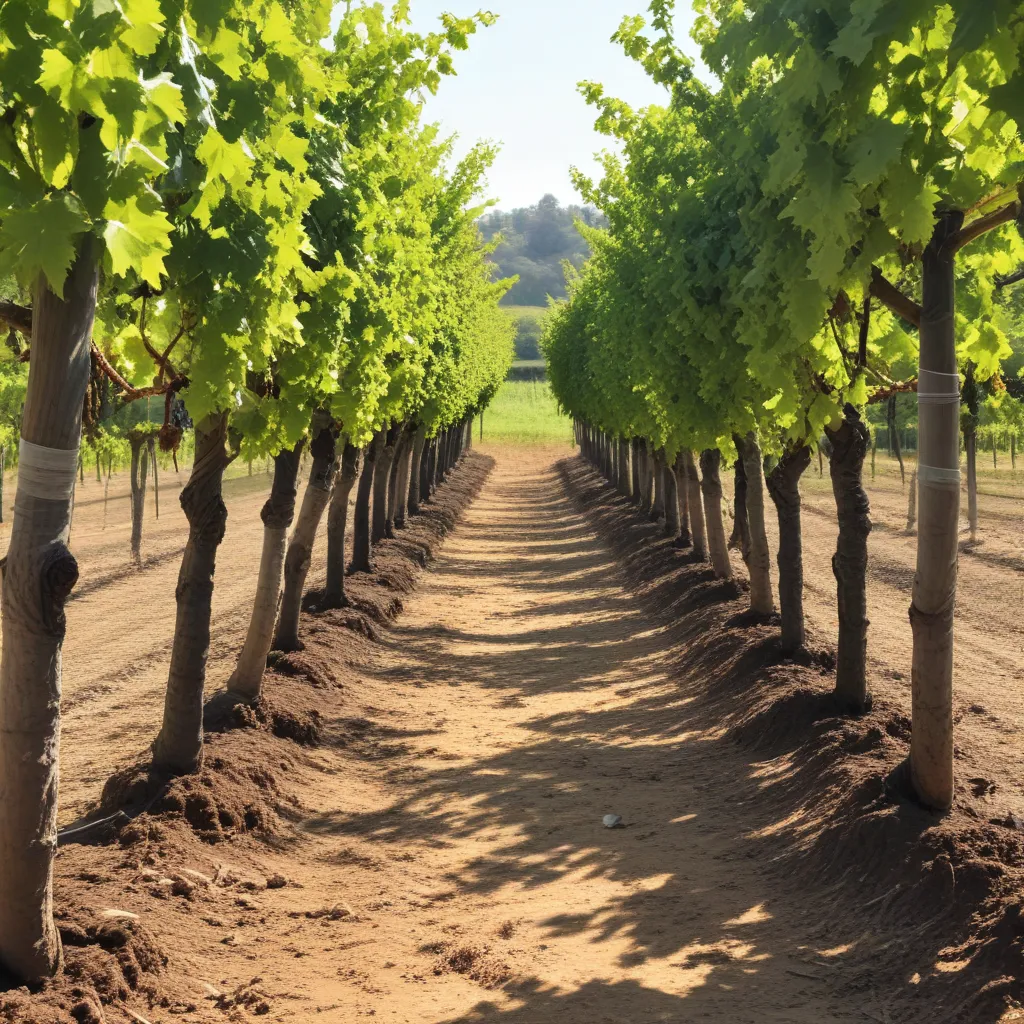
In a world where sustainability is becoming increasingly vital, the wine industry is no exception. As stewards of the land, winemakers are acutely aware of the environmental impact of their craft. At the Wine Garden Inn, we are proud to showcase the sustainable winemaking practices of our partner wineries, who are leading the charge in eco-conscious viticulture and production.
One such winery is Wiens Cellars, a small, family-owned operation in Temecula, California. As owner David Steinhafel eloquently states, “Our dream as winery owners is to not only craft exceptional wines but to do so with a deep commitment to environmental stewardship. We believe in leaving a legacy of sustainability for future generations.”
Environmentally-Friendly Viticulture
Sustainable winemaking begins in the vineyard, where winegrowers employ a variety of eco-conscious techniques to minimize their environmental impact while promoting long-term grape quality and vine health.
Organic Farming Techniques
Many of our partner wineries, including Wiens Cellars, have embraced organic farming practices in their vineyards. This holistic approach avoids the use of synthetic pesticides and fertilizers, instead relying on natural compost, cover crops, and integrated pest management strategies. By nurturing the soil’s microbial life and enhancing biodiversity, these wineries are able to produce grapes that are not only free of harmful chemicals but also better express the unique terroir of their vineyards.
Precision Irrigation Systems
Water conservation is a crucial aspect of sustainable viticulture, especially in drought-prone regions. Winemakers like those at Wiens Cellars have implemented precision irrigation systems that precisely measure and deliver the optimal amount of water to their vines. This not only reduces water usage but also helps to concentrate flavors in the grapes by managing the vines’ water stress.
Biodiversity Conservation
Beyond the vineyards, our partner wineries are also dedicated to preserving and enhancing biodiversity. By leaving sensitive areas undeveloped and planting native flora, they create habitats for a wide range of wildlife, from pollinators to endangered species. This holistic approach to vineyard management helps to maintain the delicate balance of the ecosystem, ensuring the long-term health and viability of the land.
Winery Sustainability Initiatives
The commitment to sustainability extends beyond the vineyards and into the winery itself, as our partners implement a range of eco-conscious practices to reduce their environmental impact.
Energy-Efficient Equipment
Winery operations can be energy-intensive, but our partners are leading the way in the adoption of energy-efficient technologies. From high-efficiency refrigeration systems to LED lighting, these measures help to dramatically reduce the winery’s energy consumption and associated greenhouse gas emissions.
Waste Management Strategies
Winemaking generates a significant amount of waste, from spent grape pomace to wastewater. Our partner wineries have implemented comprehensive waste management programs that prioritize recycling, composting, and water treatment and reuse. By diverting these materials from landfills, they are able to minimize their environmental footprint and create valuable by-products, such as soil amendments and irrigation water.
Water Recycling and Conservation
Water is a precious resource in the wine industry, and our partners are committed to using it responsibly. In addition to precision irrigation in the vineyards, they have also invested in advanced water treatment and recycling systems within the winery. This allows them to reclaim and reuse water for tasks like tank cleaning and landscaping, further reducing their overall water consumption.
Carbon Footprint Reduction
One of the primary goals of sustainable winemaking is to minimize the industry’s carbon footprint, and our partner wineries are leading the charge in this area.
Renewable Energy Sources
Many of our partners, including Wiens Cellars, have embraced renewable energy sources to power their operations. From solar arrays to on-site anaerobic digesters, these wineries are generating a significant portion of their own electricity, reducing their reliance on fossil fuels and the associated greenhouse gas emissions.
Low-Emission Transportation
The transportation of grapes, wine, and other materials can also contribute to a winery’s carbon footprint. Our partners are addressing this by investing in low-emission vehicles, optimizing logistics, and exploring alternatives like rail and water transport where feasible.
Greenhouse Gas Mitigation
Beyond reducing their direct emissions, our partner wineries are also taking steps to mitigate their overall greenhouse gas impact. This includes strategies like carbon sequestration through cover cropping and soil carbon storage, as well as the careful purchasing of carbon offsets to compensate for emissions that cannot be entirely eliminated.
Certification and Labeling
To showcase their commitment to sustainability, many of our partner wineries have obtained various certifications and labels that recognize their eco-friendly practices.
Organic and Biodynamic Certifications
Some of our wineries have earned organic or biodynamic certifications, which validate their use of natural, chemical-free methods in the vineyard and winery. These certifications not only demonstrate their environmental stewardship but also often result in wines of exceptional quality and complexity.
Sustainable Winegrowing Programs
Many of our partners, including Wiens Cellars and Rodney Strong Vineyards, have participated in comprehensive sustainable winegrowing programs, such as the Sustainable Winegrowing Program in California. These programs provide third-party verification of a winery’s adoption of sustainable practices, covering everything from water management to energy efficiency.
Environmental Impact Disclosure
Transparency is a crucial aspect of sustainable winemaking, and our partners are leading the way in openly communicating their environmental impact. By providing detailed information about their carbon footprint, water usage, and other sustainability metrics, these wineries are empowering consumers to make informed choices and contribute to a more eco-conscious wine industry.
As we raise a glass to the exceptional wines produced by our partner wineries, let us also celebrate their unwavering commitment to sustainable winemaking practices. By choosing wines from these eco-conscious producers, we not only savor exceptional flavors but also support the preservation of our planet’s precious resources. It’s a journey towards a more sustainable future, one bottle at a time.
